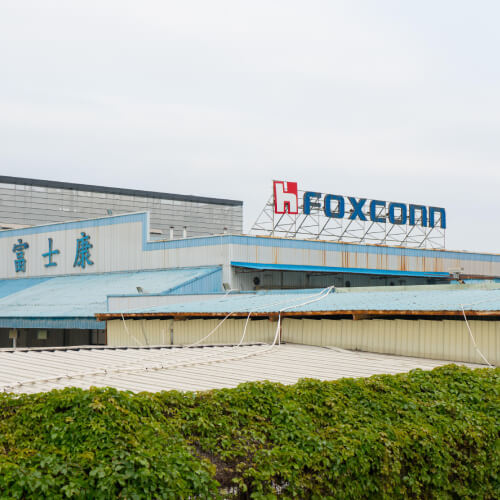Foxconn sees less chip trouble ahead
Assembler of iPhones reckons semiconductor crunch will ease in the next few months.

Hon Hai Precision Industry Company, a.k.a. Foxconn and the biggest assembler of iPhones, is optimistic that chip shortages – at least for Foxconn – will shortly become a thing of the past.
James Wu, a spokesman for Hon Hai at a company event in Taipei – as reported by Bloomberg – anticipated a major improvement in parts shortages in the first quarter, and that "overall supply constraints" are set to ease in H2.
Power management chips are apparently still in short supply, however, and it was not clear from the Bloomberg report if Wu thought they would take longer to source in sufficient volume than other components.
Figure 1:  End of the tunnel? The biggest assembler of iPhones, Foxconn, reckons the semiconductor crunch will ease in the next few months.
End of the tunnel? The biggest assembler of iPhones, Foxconn, reckons the semiconductor crunch will ease in the next few months.
(Source: Imaginechina Limited/Alamy Stock Photo)
The Bloomberg report goes on to say that Hon Hai, which apparently buys about $55 billion worth of chips a year, is "striving to minimize the impact from supply-chain challenges." What that might mean in practice was not laid out in detail, however.
Hon Hai's timeframe for an easing of supply-chain constraints seems more optimistic than others crossing Light Reading's radar recently, including Taiwan Semiconductor Manufacturing Company and Intel.
While Intel CEO Pat Gelsinger highlighted last month an "unprecedented demand" for chips, he added that this was "tempered by supply chain constraints." The CEO explained that "shortages in substrates, components and foundry silicon [have] limited our customers' ability to ship finished systems."
Gelsinger said he expected shortages to persist throughout 2022 and into 2023. The impact has been "most acutely felt in the client market, particularly in notebooks, but constraints have widely impacted other markets, including automotive, the Internet of Things and the data center," he explained.
Apple and pears
As for Apple it seems to be doing pretty well at navigating around choppy supply-chain waters, although it's not been immune to damage.
In its fiscal Q4 2021 (ended September 25), the Cupertino giant took a $6 billion hit (although hardly catastrophic for a company that flirts with a $3 trillion market cap).
Interested in Asia? Check out our dedicated content channel here on
Light Reading.
Apple CEO Tim Cook explained at the time there were two big factors doing the damage: manufacturing slowdowns due to COVID-19 and shortages of silicon components for electronics. He said the COVID situation improved "materially" by the beginning of October, however, before caveating that silicon shortages were getting worse.
As it turned out in the following quarter, the impact of chip shortages was mostly restricted to a dampening of iPad sales. Cook indicated that wrinkles in the component supply chain will start to iron out in the spring quarter, but not go away altogether.
Related posts:
— Ken Wieland, contributing editor, special to Light Reading
Read more about:
AsiaAbout the Author(s)
You May Also Like












